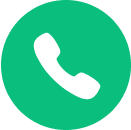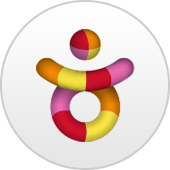- Log in
-
- Sydney Overseas Office
- London Overseas Office
- Toronto Overseas Office
- Los Angeles Overseas Office
- New York Overseas Office
- Ulaanbaatar Overseas Office
- Dubai Overseas Office
- New Delhi Overseas Office
- Manila Overseas Office
- Jakarta Overseas Office
- Hanoi Overseas Office
- Kuala Lumpur Overseas Office
- Singapore Overseas Office
- Bangkok Overseas Office
- Map
- Sydney Overseas Office
- London Overseas Office
- Toronto Overseas Office
- Los Angeles Overseas Office
- New York Overseas Office
- Ulaanbaatar Overseas Office
- Dubai Overseas Office
- New Delhi Overseas Office
- Manila Overseas Office
- Jakarta Overseas Office
- Hanoi Overseas Office
- Kuala Lumpur Overseas Office
- Singapore Overseas Office
- Bangkok Overseas Office
Contents View
-
-
-
Seoul K-Medi Center
-
03/08/2024
1.4K
-
2
4
-
-
Seoul
Dongdaemun_gu
traditional_herbal_medicine
-
-
-
Traditional Korean medicine for your body and mind at the Seoul K-Medi Center
Follow the sweet and bitter scents of traditional medicinal materials to find the Seoul K-Medi Center at Jegi-dong, Dongdaemun-gu, Seoul, the heart of Seoul’s traditional Korean medicine scene since the old days. During the Joseon Period, this was the site of Bojewon, a clinic offering free medicine and treatment for the people. Today, it still hosts the largest market dedicated to traditional Korean medicine, the Seoul Yangnyeongsi Market.

Traditional Korean medicine originates from China and was adopted by Koreans, who have developed further using herbs and materials that are grown in Korea with efforts from Korean doctors. This tradition has cared for the well-being of Koreans for many years since. Seoul K-Medi Center is an integrated cultural space which offers an exhibition dedicated to traditional Korean medicine and wellness experiences. Indeed, in traditional Korean medicine, the idea of wellness resonates with the pursuit of harmony between body and mind. Seoul K-Medi Center presents a contemporary re-interpretation of traditional Korean medicine and wellness experiences informed by tradition.


A space that captures the wisdom of traditional Korean medicine
Seoul K-Medi Center offers a one-stop experience of traditional Korean medicine, from the exhibitions in the museum to foot bath, medicine, and food experiences. The first place to visit in the Seoul K-Medi Center is the Seoul Yangnyeongsi Herb Medicine Museum on the second floor. The museum presents an overview of traditional Korean medicine with artifacts and nearly 350 medicinal ingredients on display. Particularly notable artifacts include the text Donguibogam (Principles and Practice of Eastern Medicine), a systematic treatise on Eastern medicine, and rare materials like rhinoceros horn and snake. Make sure to use the English audio guide available for rental from the first floor information desk to enhance your experience.




The wellness experience that represents the Seoul K-Medi Center is the medicinal foot bath under the eaves of hanok building. This experience is inspired by the idea of “duhanjogyeol,” keeping your head cool and the feet warm, as prescribed in the UNESCO Memory of the World entry Donguibogam (Principles and Practice of Eastern Medicine). Just dip your feet into the warm water augmented with seasonal herbs, such as mugwort in spring and mint in summer, for 20 minutes. The warmth from the warm water reaches your face and calms your mind. Because the experience is offered outdoors, it is not offered in the cold seasons, from December to February.
Traditional Korean medicine for your body and mind
Seoul K-Medi Center is located near the site of a clinic called Bojewon. This royally chartered organization was a type of a welfare organization that treated and housed people suffering from disease. Bojewon today continues this spirit through its experience programs. Lie down on the heated massage mat, wear a warming eye mask, and let your body be massaged according to the principles of meridian. Get a hand pack and massage to restore the smoothness of your hands and relax your muscles.






If you want to bring back a souvenir, take part in the craft experience programs offered at the center. Experience programs such as traditional medicine bath salt-making for foot bath, field wormwood (Artemisia campestris) bath salt-making with a gentle bitter scent, and scent pouch-making with three types of medicinal ingredients can be completed in ten minutes each. Don’t miss the traditional costume experience, where you can take a picture wearing Joseon-era clothes. If you need to take a breather, head to Chamdajeong, a traditional Korean medicine cafe. Medicinal Herb Tea, Jujube Tea, and other teas inspired by the traditional Korean medicine help to warm your body, while food items like the Lotus Leaf Rice offer a boost of energy for your trip.







Wellness Program
Among the six experience programs offered here, the three most popular ones are the medicinal foot bath, the Bojewon experiences, and the traditional costume experience. The medicinal foot bath experience helps you relax with a warm foot bath augmented by medicinal herbs. Bojewon’s traditional medicine experiences involve lying down on a warm massage mat and receiving hand and foot massages inspired by the principle of the meridian. If you want to fill your photo album or post on social media, the traditional costume experience is the way to go. Wear the clothes worn by physicians and nurses during the Joseon Period and take photos with beautiful hanok building in the background.


NOTE
▪ Address: 26 Yangnyeongjungang-ro, Dongdaemun-gu, Seoul
▪ Inquiries: +82-2-969-9241
▪ Operating Hours: Summer (March - October), Tuesday-Sunday 10:00-18:00
Winter (November - February) Tuesday-Sunday 10:00-17:00 [Closed Mondays, January 1, the day of Seollal (Lunar New Year's Day) & Chuseok (Korean Thanksgiving Day)]
▪ Website: kmedi.ddm.go.kr
▪ Experience Fees: Reservations onsite, first-come, first-served
① Seoul Yangnyeongsi Herb Medicine Museum Adult KRW 1,000 / Student (ages 7 - 18) KRW 500
② Foot Bath KRW 6,000 (up to 2 visitors per bath)
③ Bojewon experiences KRW 5,000
④ Traditional costume experience Free of charge
⑤ Medicinal foot bath salt / Field wormwood bath salt / Scent pouch-making KRW 3,000
⑥ Yakseon cuisine experience KRW 15,000-30,000
Transportation
▪ [Subway] Walk for approx. 321 m from Exit 2 of Jegi-dong Station (Seoul Subway Line 1), takes about 5 minutes
Recommended Tourist Sites
Feel the energy of Korea’s largest traditional Korean medicine market, Seoul Yangnyeongsi Market
“Yangnyeongsi” refers to markets that sell medicinal ingredients. This makes Seoul Yangnyeongsi Market a market in Seoul that sells medicinal ingredients used for traditional Korean medicine. Indeed, nearly 70% of the medicinal ingredients in Korea are distributed through this market. The market grew significantly when transportation between Seoul and Gangwon State, the main producer of medicinal ingredients used for traditional Korean medicine, improved in the 1960s. When you exit from Seoul Subway Line 1 Jegi-dong Station, you can feel the bittersweet scent of medicinal ingredients in the air. Soon enough, you will find many stores specializing in traditional Korean medicine, from shops directly handling medicinal ingredients to traditional clinics and mills that grind ingredients into powder. You will see ingredients that you do not recognize, merchants moving busily, and snacks that will hold you captive. Just looking around the market is enough to fill you with energy.

NOTE
▪ Address: 10 Yangnyeongjungang-ro, Dongdaemun-gu, Seoul
▪ Inquiries: +82-2-969-4793~4
▪ Website: seoulyak.com
Retro feels at a traditional market: LG Gold Star Radio Refresh Center & Starbucks Kyungdong 1960 at Gyeongdong Market
Gyeongdong Market is a 60-year-old market that has recently seen a massive resurgence as a trendy, retro-style destination, thanks to the LG Gold Star Radio Refresh Center and the Starbucks Kyungdong 1960. LG Gold Star Radio Refresh Center is a pop-up store run by the Korean electronics giant LG. It exhibits interesting items made out of old and derelict home appliances. The interior is decidedly retro, full of neon signs and picturesque spots. Starbucks Kyungdong 1960, located right next to the center, is housed in a renovated theater that had been left derelict for more than 20 years. The interior makes use of the theater-style arrangement of seats, so you can really savor your coffee.

NOTE
▪ Address: (3-4F, Gyeongdong Market Main Hall), 3 Gosanja-ro 36-gil, Dongdaemun-gu, Seoul
▪ Inquiries: +82-2-3295-4947
▪ Website: goldstar.lge.co.kr





